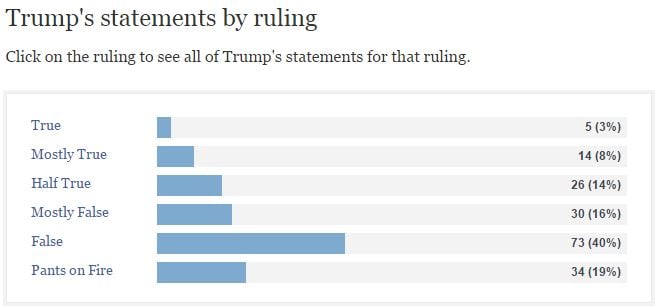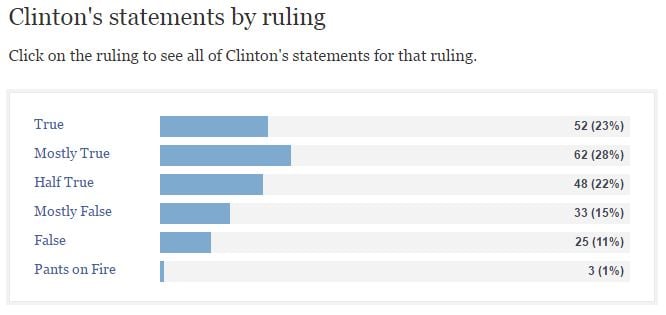
Most coaching schools, including School of Coaching Mastery, teach that judging your clients is counterproductive, because people resist being judged and reducing resistance is the first step in helping a client become resourceful. Even positive judgments can be problematic under some conditions. But being non-judgmental during coaching is a challenge for most new coaches and continues to create challenges even for many veterans.
Like most behaviors, non-judgment works like a muscle.
The more you work it, the stronger it gets. So many coaches regularly practice non-judgment in their lives to help them be more judgment-free during coaching. This is also a common spiritual practice and a form of mindfulness. I highly recommend it.
However, becoming perfectly non-judgmental, all the time, appears to be impossible.
For example, His Holiness, the Dalai Lama, regarded as one of the wisest men on Earth, confesses that he doesn't always achieve it and the Bible includes a story of Jesus angrily evicting money changers from a temple, because they disrespected his Father's House. That last type of judgment, sometimes called, "righteous indignation", is considered a relatively okay form of judgment by many spiritual people.
Here's the problem with non-judgment: it sends judgment into the shadows where it can turn nasty.
The moment we embrace a belief, attitude, or judgment, we tend to disown its opposite. That creates a shadow, a "voice", if you will, that hides in your unconscious. If you're lucky, it'll manifest as a blind spot that your loved ones all see, but remains invisible only to you. Not so lucky? A shadow can drive destructive behavior that reeks havoc in your life.
Ever notice how arrogant and judgmental some spiritual people are? You're experiencing their judgmental shadows.
This sometimes happens to coaches, too. I remember when I was in coach training, for instance. In addition to non-judgment, integrity was an important concept at my school. It basically meant, in coaching terms, that a person lived in harmony with their own values. If you didn't behave in a way that was in harmony with your values, you were said to be, "out of integrity". Since your integrity is based on your personal values, it's fair to say only you would know if you were out of integrity, but since judgment was frowned upon and most of us were still pretty judgmental, at least some of the time, it became acceptable to say, "So-in-so is out of integrity," if we were feeling a little judgy. I did it too, until I caught myself in the act.
Plus, people who practice non-judgment can be really judgmental about others who are judgmental.
Well I caught myself being out of integrity again, recently. This time it was about not being judgmental enough! In the past, I've tried to keep my public opinions focused on coaching: what works, what's professional, and what's ethical. And like most professionals, I try to stay out of politics, because I don't want to offend my clients and colleagues. But some situations are more extreme than others.
Should I remain quietly non-judgmental while evil prevails, just so I can make a few more dollars?
Fortunately for me, I am financially secure enough and my email list (30,000+) and blog readers (20,000+ monthly) are substantial enough that I can afford to offend a few people, if it matters enough. But occasionally I feel a bit judgmental about coaches who stay mum when they could do good by speaking up. That's probably not fair. The fact is, my security puts me in a position to speak to a lot of people and make a positive difference and I can afford to do it.
Doesn't that also make it my duty?
"First they came for the Socialists, and I did not speak out—
Because I was not a Socialist.
Then they came for the Trade Unionists, and I did not speak out—
Because I was not a Trade Unionist.
Then they came for the Jews, and I did not speak out—
Because I was not a Jew.
Then they came for me—and there was no one left to speak for me."
- Martin Niemöller, a prominent Protestant pastor who opposed the Nazi regime. He spent the last seven years of Nazi rule in concentration camps.
What could be so threatening that I would reference a poem about the Nazi holocaust?
I will get to that momentarily, but first let me explain where I'm coming from.
My greatest strength is Learning. It ranks high on every strengths assessment I've ever taken. That's why, at an age when my friends are retiring, I'm writing my dissertation. The fact that I'm writing about values helps keep me honest.
So when it comes to politics, I do my research. A lot of it. That doesn't mean I know everything (far from it) or that I'm always right, but it does mean I take the time to look things up before I talk about them. What I've found (not surprising) is that the popular narratives in American politics are rife with "truthiness", a term coined by Steven Colbert, that refers to something that feels true because it's been heard so often. In other words, if you say something often enough, people will believe it.
Truthiness is that felt sense that something must be true, even if you can't explain why.
But isn't that what intuition is? No. Intuition happens when you are present, curious, free from fear and anger, and learning quickly. Your mind makes new connections and suddenly you "know" something, but can't quite explain how. It usually feels good.
Even though you know, it's wise to check the evidence, just in case your "intuition" is really just truthiness.
Truthiness occurs when you're not fully attentive and are feeling fear or anger. It comes from the primitive brainstem and limbic system and is the culmination of implicit biases, prejudices, what you think will keep you safe, and it's "what they say", especially if "they" include your spouse, your friends, or people who look like you. We all succumb to it, but can't quite explain it. And it usually feels bad.
Truthiness is what you hear when someone says, "I just feel that Hillary Clinton is dishonest," or, "I just don't like her." She may or may not be dishonest, but people who say so can rarely point specifically to why. They may mention something vague like Benghazi or emails, but they usually can't describe in detail what she did wrong and often haven't even checked, but merely accept "what they say." Jimmy Kimmel does a brilliant skit on this.
This article is not about her. This one is about Hillary Clinton.
This article is about that master of truthiness, or what he likes to call, "truthful hyperbole" (aka, lying), Donald Trump. I don't expect you to accept everything I'm about to say, but if you don't, I do expect you to at least look it up, not just at a biased blog site or cable news show that supports your current views, but at a site that's known for careful fact-checking and a genuine attempt at balanced reporting, before you express opinions. Otherwise, you're likely to be spreading truthy lies and not even know it.
Is Trump Evil?
It depends on how you define evil. To me, evil is when you're only for yourself, even if you say otherwise, and you don't care who you hurt, or you have already hurt many people and have the capacity to do a lot more damage. Trump fits my definition of evil. It's appalling to me that good people are willing to overlook his immoral campaign, his complete lack of character, his schoolyard ridicule of vulnerable people, all for his own personal gain.
We can pretend that he doesn't really mean the vile things he says, but that doesn't make his words okay. We can also choose to believe that his innuendos about black people, Muslims, Mexicans, women, etc. etc. aren't serious, or that his ignorance of governance, and disinterest in learning the law, isn't a major concern, or that his insults to our allies and praise of various dictators doesn't matter, or that his flagrant disrespect for the Constitution and the judicial system don't point to a dictatorial leadership style, but they do.
The only thing needed for evil to prevail is for good people to stand by and be polite about it.
Dubbed a pathological liar by virtually everyone who knows him well, Donald contradicts himself constantly. In fact the Pullitzer-Prize winning, Politifact, which tracks statements made by candidates, and wisely offers a range of possible truthiness, since most candidates are prone to stretch the truth or flat-out lie, says Trump's statements are Mostly False, Completely False, or Pants-on-Fire False a whopping 90% of the time. Clinton by contrast, makes statements that are Mostly False, Completely False, or Pants-on-Fire False 27% of the time (as of July 19, 2016). That means Trump lies more than three times as often as "Crooked Hillary", while the vilified Clinton has told the unvarnished truth more than any other candidate in this year's race. See Politifacts rulings on both Trump and Clinton, below.


What's more,the ghost-writer of The Art of the Deal, Tony Schwartz, who spent eighteen months shadowing Trump daily and interviewing his colleagues in order to write the book, claims he knows Trump better than almost anyone and considers Trump a sociopath who lies constantly to get what he wants, has no remorse when he reneges on his bills and his deals, which has ruined businesses and put thousands out of work, and that Trump's reputation as a great businessman, who has mastered deal making, is largely a fiction that Schwartz created in order to make his odious self-aggrandizing subject appear more likable. Schwartz is now horrified that Trump has used the false image created in The Art of the Deal to swindle America into making him the most powerful person on the planet.
“This is a man who has more sociopathic tendencies than any candidate in my adult life that I’ve observed,” Schwartz told ABC News. “You know, it’s a terrifying thing. I haven’t slept a night through since Donald Trump announced for president because I believe he is so insecure, so easily provoked and not — not particularly — nearly as smart as people might imagine he is,” he said. “I do worry that with the nuclear codes, he would end civilization as we know it.”
Trump's biographers say it was Trump's father, Fred, who was the real builder and deal-maker and whose signature was required to cosign Trump's biggest deals right up to the time when The Art of the Deal was published, that Trump was worth "nothing" until his father died, leaving him an enormous fortune, and that within a few years, after a huge spending spree, Trump was worth negative $3 million (that's minus $3M). He filed for bankruptcy four times over the next several years, and instead of building things, he mostly made money off his name, which he has licensed to projects around the world (some of which employ slave labor), many of which are in bankruptcy now.
Trump praises Kim Jong Un and Saddam Hussein, even joked that Hussein's gassing of his own people, was no big deal. What will it be like when President Trump gasses the state of Vermont, because it's too liberal, or the City of Atlanta, because it's too black? You think that could never happen? Do you want to find out? Trump's stump speech style is a page out of Adolf Hitler's campaign strategy, telling the electorate that the system is rigged against them and certain people - outsiders - are to blame for it..
Is the system unfair? Yes. Is pitting American against American going to fix that? Of course not, but it does lead to rage, bigotry, and violence. We're already seeing the results. And Trump says he'll launch World War 3 when he becomes President. One of Trump's wives even claimed her husband kept a bound copy of Hitler's speeches next to his bed.
As Republican commentator, David Brooks, said earlier this year, Trump is addicted to attention and like all addicts, he is masterful as securing his supply. Trump's brash ability to grab the media's attention and to Brand himself is truly brilliant. That is the only brilliance he possesses. Everything else is a lie.
Clinton is a flawed human being. Trump is a moral catastrophe.
Coaches are influential and have a duty, I think, to speak up. You're welcome to disagree, unsubscribe, and unfollow. One former student suggested to me that it wasn't worth talking about politics in public if it meant scaring off potential clients. Clearly, I disagree, at least for myself. On the one hand, a lost client is survivable, while World War 3 probably is not. On the other hand, like-minded people are attracted to each other and, like Trump, I have a brand. A big part of my brand is speaking up, making waves, leading, and setting an example. Do I get judgy sometimes? Yes, sorry. It goes with the territory.
You're welcome to comment, below, or on social media, but flamers and trolls won't be tolerated.









 I just watched a lecture by positive psychologist,
I just watched a lecture by positive psychologist, 

